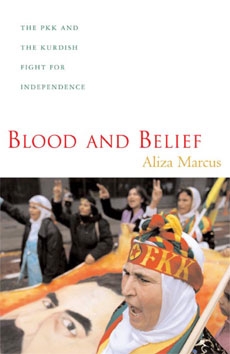| Éditeur : New York University Press | Date & Lieu : 2007-01-01, New York |
| Préface : | Pages : 364 |
| Traduction : | ISBN : 978-0-8147-5711-6 |
| Langue : Anglais | Format : 152x228 mm |
| Code FIKP : Liv. Ang. 2040 | Thème : Politique |
|
Présentation
|
Table des Matières | Introduction | Identité | ||
 Blood and Belief: The PKK and the Kurdish Fight for Independence | |||||
| Identité | ||||
| Aliza Marcus
ALIZA MARCUS, a journalist for more than 15 years, began reporting on Turkey and the Kurdish guerrilla war in 1989. She worked for Reuters News Agency in New York for two years before being named Istanbul correspondent in 1994. In 1995, a Turkish state security court opened a case against her for a news article on the Turkish military’s forced evacuation of Kurdish villages: The charge was “inciting racial hatred” under since-repealed Article 312. After being acquitted, she was transferred to the Reuters Middle East / Africa editing bureau in Cyprus. Between 1998 and 2000, she worked in Israel as a special correspondent for The Boston Globe, and between 2002 and 2006, she was based in Berlin. Currently, she lives in Washington, D.C.
| ||||